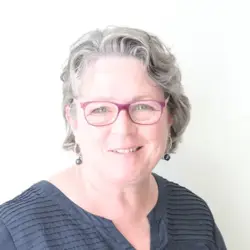Making the most of your 3-minute reading time
In all OSCE cases, you have three minutes of reading time. One of the tricks of success is optimising that three minutes.
Firstly, you need to let the previous question go. You don’t have time to think about what you may have done wrong, how you could have answered differently etc. Put it in a balloon and let it float away, or put it in a different part of your brain to think about later. Move on to the next question!
Second, read the question. On the door outside each room is:
- a set of instructions,
- a scenario,
- and a patient summary.
There may also be some results of investigations. The instructions will tell you what to do. They may tell you to take a history, ask the observing examiner for some physical examination findings, discuss your differential diagnosis with the examiner – or the patient, do some investigations – or not – and discuss management. Each question will be different, and it is ideal to have some way of recording this on your piece of paper. Many mistakes are made by not reading the question and instructions properly!
Having a structure in your head before you walk into the exam helps you to keep time, and to keep on track. This can be represented on paper by a template. The idea of having a template is not that it be slavishly followed for every single case. It is meant to be a prompt to remind you of your structure, and act as a little nudge if you get lost or stressed and can’t remember what to ask next.
One important piece of advice is that you should try not to make any assumptions about what the case is going to be before you walk in the door. If you have your mind set on something, it can be very hard to shift gears. For example, if you read the case scenario and background and read that it is a 58 year old male with diabetes, high cholesterol, hypertension, and recently escalating chest pain, you may decide that this case is about angina. You may get a shock when he tells you that he has been a victim of domestic violence, and perseverate on his chest pain for a few minutes.
Don’t try anything new on exam day. Practice with your template so that you are familiar with it. Don’t try any new medication to calm your nerves such as Beta blockers. Have a few practice runs beforehand.
OSCE Preparation Course
Medcast has an OSCE Preparation course that helps registrars prepare for the OSCE Exam. The course includes live practice webinars, that provide participants the opportunity to practice cases and receive feedback from our experienced Medical Educators. Read more about the course here.

Allison is a GP with over 20 years experience. She is a Medical Educator (ME) for a GP Training Provider and has been an OSCE examiner with the RACGP since 2010. Allison is one of the expert MEs that co-facilitate the Medcast exam preparation courses.
Become a member and get unlimited access to 100s of hours of premium education.
Learn moreIn our day-to-day work as a GP, we undertake clinical reasoning with nearly every patient, mostly subconsciously. However, in preparation for the KFP exam, it can be helpful to deconstruct the clinical reasoning process. Hence this blog!
This Hot Topics Keep it Simple Summary is a guide to evidence based medicine in 2020, straight from our UK partners, NB Medical.
“That was a disaster. I ran out of time. I didn’t answer the question. I definitely failed that case”. As a Medical educator I’ve heard it a thousand times, and you’ve probably found yourself saying or thinking it.
